Get Roof Vents Installation in Denver, CO
Roof vent installation services help Denver property owners improve attic ventilation, prevent moisture buildup, and manage heat during hot Colorado summers by connecting them with experienced local contractors.
Property owners in Denver, CO, considering roof vent installation often seek practical solutions to improve attic ventilation, reduce energy costs, and protect their investment from weather-related wear. Properly installed roof vents can help regulate temperature and moisture levels, which is especially important in the region’s varying climate conditions. Exploring options for this type of work allows property owners to compare local contractors who have experience addressing the unique needs of Denver-area homes and commercial buildings.
If you are planning a roofing project or exploring ways to enhance your property’s airflow, it’s helpful to connect with local service providers who specialize in roof vent installation. These professionals can offer guidance on the best ventilation solutions for your specific property, ensuring the work is performed effectively. Keep reading to discover how local contractors can assist in planning and executing your roof vent installation project.
- Attic Ventilation Installation - needed when attic heat and moisture buildup threaten roof integrity in neighborhoods like Capitol Hill.
- Roof Vent Replacement - required when existing vents are damaged or inefficient, common in older Denver homes.
- Attic Exhaust Vent Services - necessary to improve airflow and reduce cooling costs during hot summer months in nearby communities.
- Gable and Roof Vents Installation - suitable when upgrading ventilation systems to enhance energy efficiency in residential areas across Denver.
- Attic Fan and Vent System Setup - ideal for homeowners seeking to improve attic airflow and prevent moisture issues in neighborhoods such as Highlands.
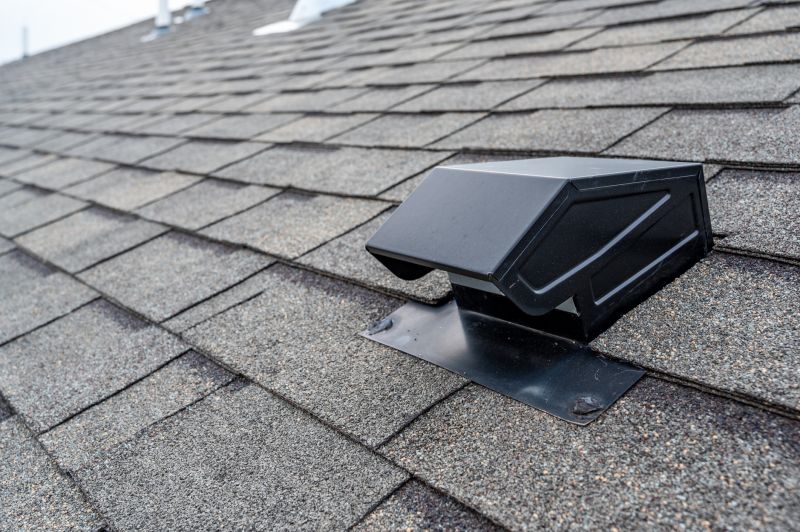
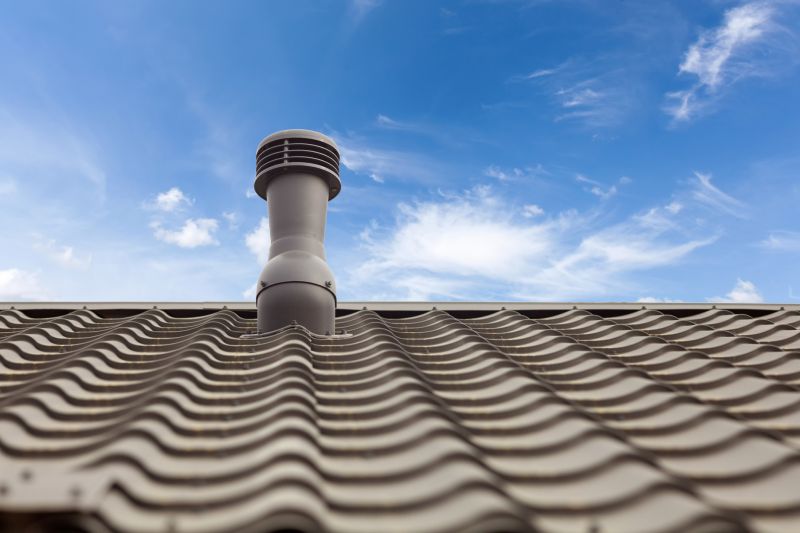
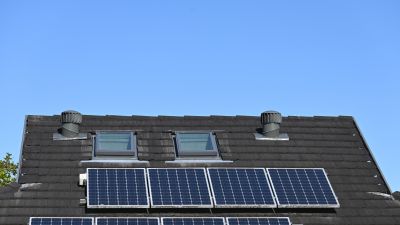
Roof vent installation involves adding specialized vents to a property's roof to improve airflow and ventilation. These vents are typically installed in the attic or roof space to allow hot, moist air to escape, helping to regulate temperature and moisture levels inside the building. Proper installation requires assessing the roof's structure, selecting the appropriate vent types, and ensuring they are correctly positioned for optimal performance. Skilled service providers can handle the entire process, from evaluating the property's needs to installing the vents securely and efficiently.
Installing roof vents can help address common problems such as excessive heat buildup, moisture accumulation, and mold growth in the attic. Without adequate ventilation, hot air can become trapped, causing increased cooling costs and potential damage to roofing materials. Moisture that isn't properly vented can lead to wood rot, mold, and structural issues over time. By improving airflow, roof vent installation contributes to a healthier, more energy-efficient home environment, reducing the risk of costly repairs caused by poor ventilation.
This service is often sought for residential properties, including single-family homes, townhouses, and multi-family buildings. It is especially beneficial in properties with poorly ventilated attics or those experiencing signs of excess heat or moisture. Commercial and light industrial buildings with roof access may also require vent installation to maintain appropriate indoor conditions and protect roofing assets. Homeowners and property managers who notice attic heat buildup, condensation, or mold should consider consulting local contractors about roof vent options.
Property owners in Denver, CO, and nearby areas often turn to local service providers for roof vent installation when upgrading or maintaining their roofs. These professionals can assess the specific ventilation needs of each property, recommend suitable vent types-such as ridge vents, soffit vents, or gable vents-and ensure the work is completed correctly. Properly installed roof vents can enhance comfort, protect the roof structure, and improve overall energy efficiency, making them a practical choice for many property types.
The overview below groups typical Roof Vents Installation projects into broad ranges so you can see how smaller, mid-sized, and larger jobs often compare in Denver, CO.
In many markets, a large share of routine jobs stays in the lower and middle ranges, while only a smaller percentage of projects moves into the highest bands when the work is more complex or site conditions are harder than average.
Smaller Repairs - Typical costs for minor roof vent repairs or replacements in Denver range from $250 to $600. Many routine jobs fall within this middle range, depending on the vent type and roof accessibility. Fewer projects reach the higher end of this spectrum unless additional work is needed.
Standard Installation - Installing new roof vents or replacing existing ones usually costs between $600 and $1,200. Local contractors often handle these projects within this range, with larger or more complex installations potentially exceeding $1,500.
Larger or Complex Projects - Larger-scale installations or those involving additional roof modifications can range from $1,200 to $3,500. Such projects are less common but may be necessary for extensive ventilation system upgrades or custom setups.
Full Roof Vent Replacement - Complete replacement of multiple roof vents or an entire ventilation system can cost $3,500 or more. These larger projects are less frequent and depend on roof size, vent quantity, and complexity of the installation process.
Actual totals will depend on details like access to the work area, the scope of the project, and the materials selected, so use these as general starting points rather than exact figures.
Attic Ventilation Installation - involves planning and installing ventilation systems that improve airflow, similar to roof vent installation techniques.
Gutter and Eavestrough Installation - requires precise planning and tool use to ensure proper water drainage, often working alongside roof components.
Roof Inspection and Repair - involves assessing roof conditions and making repairs, which can include vent-related issues and requires similar safety and planning skills.
Skylight Installation - requires working with roofing structures and sealing techniques, paralleling the skills needed for roof vent setup.
Roof Insulation Projects - involve planning and installing insulation materials that work in conjunction with roof ventilation systems for energy efficiency.
Chimney and Vent Pipe Installation - involves working with roof penetrations and ensuring proper sealing, similar to installing roof vents for proper airflow.
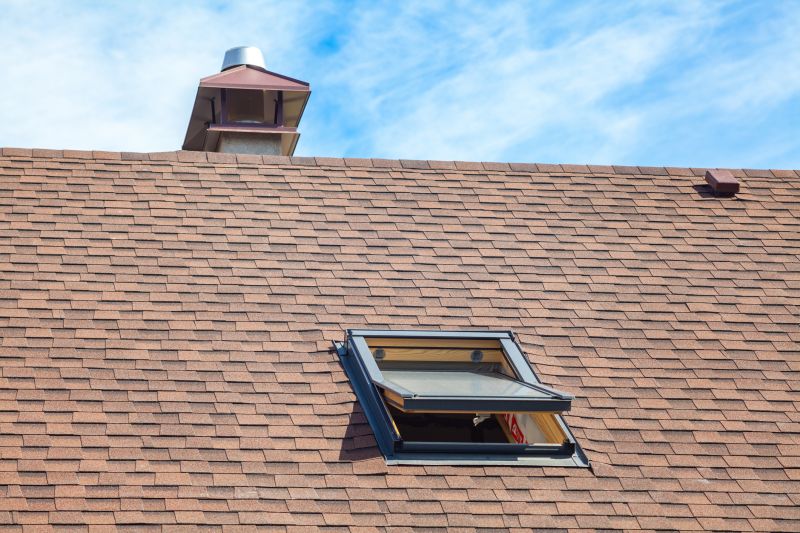
When comparing contractors for roof vent installation, it’s important to consider their experience with similar projects in the Denver area. Homeowners should look for service providers who have a proven track record of handling roof vent installations, especially on homes with comparable roof styles and materials. An experienced contractor is more likely to understand the unique challenges that can arise during installation and can recommend solutions that ensure proper ventilation and durability. Asking about past projects or seeking references can help gauge a contractor’s familiarity with local building conditions and their ability to deliver quality results.
Clear, written expectations are a key part of choosing the right service provider. Homeowners should request detailed proposals that outline the scope of work, materials to be used, and the steps involved in the installation process. Having this information in writing helps prevent misunderstandings and ensures that everyone is aligned on the project’s goals. It also provides a basis for comparing different contractors’ approaches and pricing. Be cautious of vague descriptions or estimates that lack specifics, as clarity can be a sign of professionalism and transparency.
Reputation and communication are essential factors when selecting local contractors for roof vent installation. Reputable service providers often have a history of satisfied customers and can provide references or testimonials upon request. Good communication is also vital; contractors who are responsive, clear, and attentive to questions tend to be more reliable and easier to work with. Homeowners should feel comfortable discussing their needs and concerns, and a contractor’s willingness to listen and provide thorough explanations can be a strong indicator of their professionalism. It’s important to remember that this site helps connect homeowners with qualified local options, not that it performs the work itself.
Property owners in Denver, CO use Roof Vents Installation services for practical projects around their homes and businesses. This guide focuses on everyday jobs and straightforward project options.
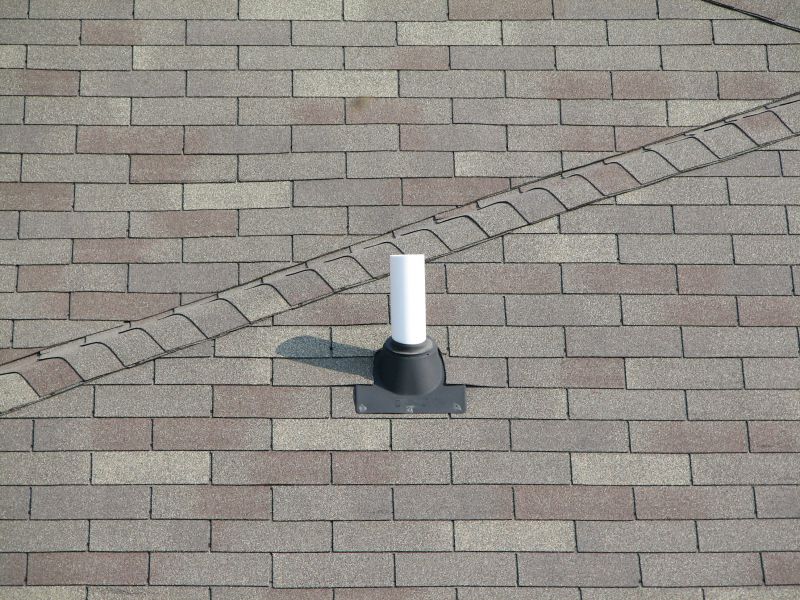
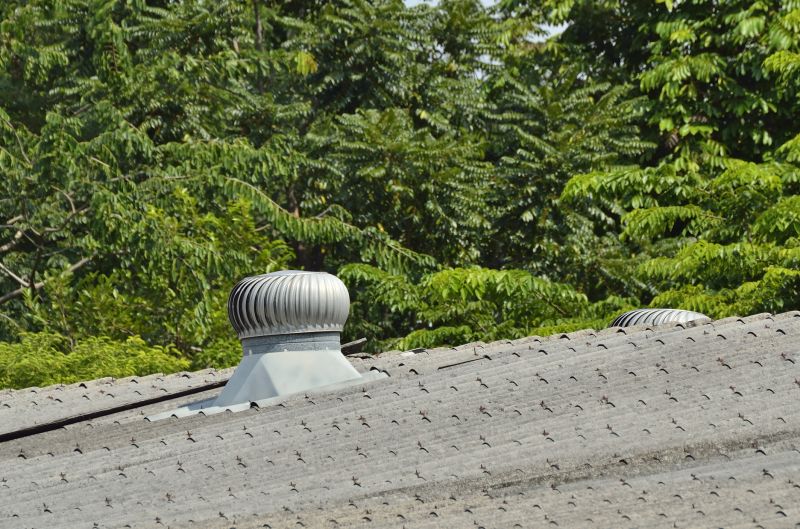
Roof vent installation is a common project for property owners in Denver, CO who are looking to improve airflow and ventilation within their homes or commercial buildings. Many residents seek these services when experiencing issues like excess heat buildup during the summer or moisture accumulation in the attic, which can lead to mold growth or structural concerns. Local contractors can help ensure proper vent placement and installation to promote better air circulation, especially in areas with variable weather conditions that can impact indoor air quality and energy efficiency.
Homeowners and business owners in Denver might also consider vent installation when undertaking roof repairs or upgrades, aiming to enhance overall roof performance. Proper ventilation can extend the lifespan of roofing materials and prevent problems caused by trapped heat and humidity. Service providers in the area are equipped to handle different types of roof vents, offering solutions tailored to the specific needs of each property, whether for new construction or retrofit projects.
What are roof vents used for? Roof vents help improve attic airflow, reduce moisture buildup, and prevent heat accumulation, which can protect the roof structure and improve energy efficiency.
How do I know if my roof needs new vents? Signs include excessive attic heat, condensation issues, or visible damage around existing vents, indicating that new or upgraded roof vents may be beneficial.
What types of roof vents are available? Common options include ridge vents, soffit vents, turbine vents, and attic vents, each designed to serve different ventilation needs and roof configurations.
Can roof vent installation be done on any type of roof? Most residential roofs can accommodate roof vents, but the suitability depends on roof design and structure, which local contractors can evaluate.
Why should I hire local contractors for roof vent installation? Local service providers have experience with regional building codes and climate conditions, ensuring proper installation and performance of roof vents.
Improve attic ventilation - Installing roof vents helps regulate airflow, reducing heat buildup and moisture in the attic space.
Prevent roof damage - Proper vent installation can prevent ice dams and roof leaks caused by excess heat or humidity.
Enhance energy efficiency - Adequate roof vents can lower cooling costs by allowing hot air to escape during warmer months.
Maintain indoor air quality - Proper ventilation helps reduce indoor humidity and mold growth, creating a healthier living environment.

If you are thinking about Roof Vents Installation for a property in Denver, CO, this guide is meant to help you understand the work, the typical project types, and how different options might fit your plans.
When you are ready, you can use the quote form on this page to share a few details about your project. From there, local pros can review the basics and respond with options that match what you have in mind.



